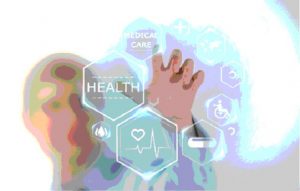The Future of Healthcare Technology
By Sarah-Claire Jordan
 In the U.S., one of the biggest concerns this past election was the costs of healthcare, and what each candidate promised to do to handle that. Regardless of what you think the best solution is, the problem remains the same: healthcare costs are much too high. Luckily, there are some tech-savvy people out there thinking up new ways to make healthcare better and more affordable for everyone.
In the U.S., one of the biggest concerns this past election was the costs of healthcare, and what each candidate promised to do to handle that. Regardless of what you think the best solution is, the problem remains the same: healthcare costs are much too high. Luckily, there are some tech-savvy people out there thinking up new ways to make healthcare better and more affordable for everyone.
The most promising of these innovations involves the merging of in-person care with virtual care to create a more holistic and cost-effective care system. There have been many technological advances in the past decade that could be applied to the healthcare sector, such as apps for patients and doctors to use to keep better track of treatment and the patient’s progress.
Telecommunications is a field of technology that has seen an overhaul in terms of how it can be used to create better healthcare systems. The main way this type of technology can contribute to improving our healthcare is using it to help patients communicate with doctors and hospital staff about any issues, thus saving them a trip to, and sometimes a stay in, the hospital.
This will require more than just setting up phone lines between patients and hospitals, however. An entire platform will need to be created so that everything can be in one place, rather than having information and important records stored in different places. This will require some time to develop, but once it is done, it will streamline everything and save everyone time and money in the end.
One important issue with anything related to telecommunications, and healthcare technology, is language. Will these new systems be made with only native English speakers in mind, or will there be options for those who aren’t proficient enough in English to communicate with healthcare professionals without assistance? The healthcare system we have now relies heavily on medical interpreters to get everyone the care they need, especially over-the-phone interpreting. Could this be integrated into these new holistic systems as well?
Telephone interpreting might actually be the best option for this new kind of system. Patients will already be communicating with their doctors from their own homes, which will save both parties money, so it seems logical and entirely feasible to simply add in a feature that allows for connection with medical interpreters. It could work similarly to how it works now, but be part of a larger platform this time. No matter what happens with healthcare in the future, telephone interpreters will still be very much needed.
Category: Business Translation








